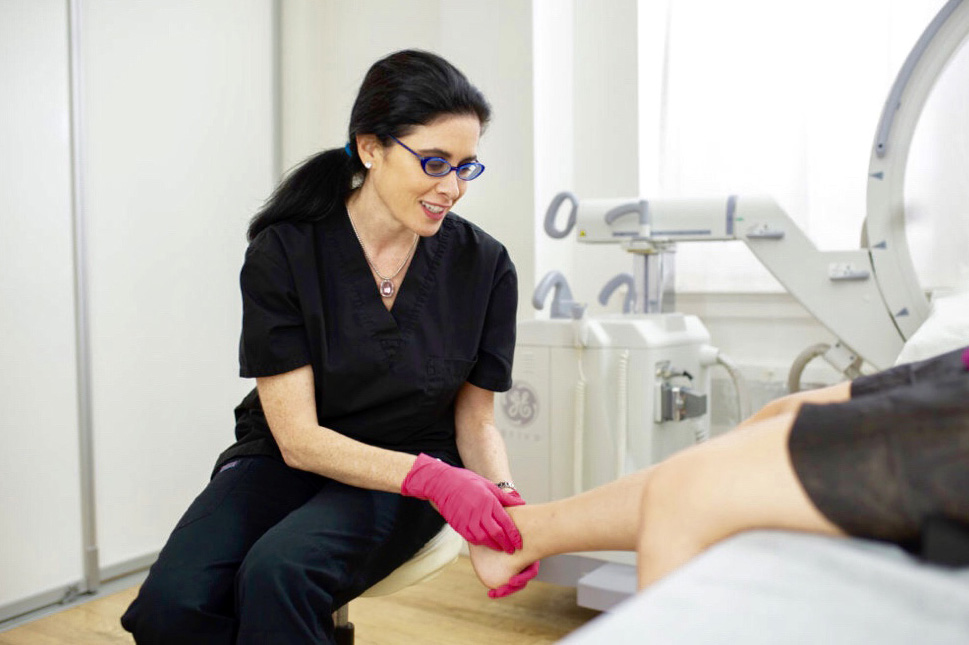
Vein health is a crucial aspect of overall well-being, and when issues arise, seeking the right medical professional becomes essential. Many individuals wonder, “What is a vein clinic, and what is a vein doctor called?” In this comprehensive guide, we will delve into the world of vein health, exploring the functions of a vein clinic and shedding light on the role of a vein doctor.
A vein clinic is a specialized medical facility that focuses on the diagnosis and treatment of venous disorders. These disorders primarily involve the veins, which are responsible for transporting blood back to the heart. Vein clinics play a pivotal role in addressing conditions such as varicose veins, spider veins, and other venous insufficiencies.
A vein doctor, also known as a phlebologist, is a medical professional with specialized training in the field of venous medicine. These doctors are experts in diagnosing and treating various venous conditions, providing patients with comprehensive care to alleviate symptoms and improve overall vein health.
Vein doctors employ a range of diagnostic tools and procedures to assess the condition of a patient’s veins. Duplex ultrasound, for example, is commonly used to visualize blood flow and identify any abnormalities in the veins. Once a diagnosis is made, the vein doctor will discuss treatment options tailored to the specific needs of the patient.
Vein doctors are skilled in performing a variety of procedures to address venous disorders. Sclerotherapy is a popular non-invasive treatment where a solution is injected into the affected veins, causing them to collapse and gradually fade away. Another common procedure is endovenous laser treatment (EVLT), which uses laser energy to seal off problematic veins, redirecting blood flow to healthier vessels.
For more severe cases, vein doctors may recommend ambulatory phlebectomy, a minimally invasive surgical procedure that involves the removal of damaged veins through small incisions. These procedures aim to relieve symptoms, improve blood circulation, and enhance the overall appearance of the legs.
Selecting the right vein doctor is a crucial step in addressing venous issues effectively. Patients should look for board-certified phlebologists with a strong track record in vein care. It’s essential to consider factors such as experience, patient reviews, and the range of services offered by the vein clinic.
Additionally, a reputable vein doctor will take the time to thoroughly assess the patient’s medical history, conduct a comprehensive examination, and discuss treatment options in detail. Open communication and a patient-centered approach are key indicators of a reliable vein doctor who prioritizes the well-being of their patients.
Venous disorders, if left untreated, can lead to more serious complications such as chronic venous insufficiency, blood clots, and skin ulcers. Seeking timely treatment from a qualified vein doctor can prevent the progression of these conditions and improve the quality of life for individuals experiencing symptoms related to venous issues.
In conclusion, understanding what a vein clinic is and what a vein doctor is called is crucial for anyone concerned about their vein health. Vein clinics, staffed by specialized professionals known as vein doctors or phlebologists, play a vital role in diagnosing and treating a variety of venous disorders. From non-invasive procedures like sclerotherapy to more involved treatments like ambulatory phlebectomy, vein doctors offer a range of solutions to address the unique needs of each patient.
When considering vein treatment, it’s essential to choose a reputable vein doctor who prioritizes patient well-being and employs the latest advancements in venous medicine. By seeking timely treatment, individuals can alleviate symptoms, improve vein health, and enhance their overall quality of life. So, the next time you find yourself wondering, “What is a vein clinic, and what is a vein doctor called?” you’ll be armed with the knowledge needed to make informed decisions about your vein health.